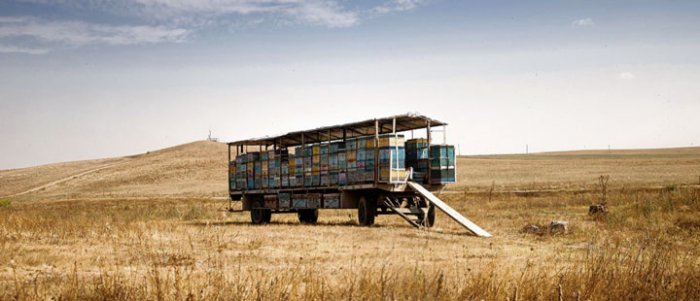Agriculture is a dominant industry in developing countries, yet farmers often struggle to earn a living income: in 2015, 85% of people below the poverty line lived in rural areas. Low productivity, climate hazards and difficult access to high value-added markets are the main barriers to development. By enabling access to appropriate financial and non-financial services, mobile technology plays a key role in rural and agricultural development. Let's imagine the daily life of tomorrow's connected farmer: more productive, financially included, perfectly integrated in the value chain and respectful of the environment.
Mali, 2030. Badra is a sorghum farmer in the Sikasso region in southeast Mali. He has been a member of an agricultural cooperative for several years. Thanks to digital tools and tailored partnerships, he has been able to consolidate his business, stabilise his output and earnings, and embark on new projects without having to worry.
Using the loT and mobile tools to produce a better harvest
At the start of the crop year, the GPS tracker in the cooperative tractor tells Badra that one of his neighbours has just dropped the tractor off in the shared hangar. He immediately books the tractor on his mobile, and the hiring fee is debited from his mobile money account. When he has finished sowing, he checks the ground temperature and the humidity rate recorded by the sensors installed all over his land.
He purchased these sensors through the cooperative. Connected via the LoRa (Long Range) network, they have a 10-year service life and use very little energy. An intuitive user interface gives him access to a range of essential indicators, and he has chosen to share the data with the cooperative. As a result, the co-op agricultural consultant can anticipate his needs and provide him with appropriate advice during his weekly rounds.
If the humidity rate is too low, Badra gets water from the cooperative shared tanks. The smart sensors on the tank tell him exactly how much water he can take, based on the size of his farm and the fill rate. Thus, all the members of the cooperative are treated equally.
To help himself to water, he scans the tank QR code and is recognised immediately. The tank dispenses the water on a pay-as-you-go basis, taking into account the rules of the co-op and the amount of funds in his mobile money account.
Thanks to the mobile services provided to farmers, Badra can rest assured that his seedlings will grow well.
He thinks one of his seedlings is diseased, so he takes a photo of it and sends it to the farming community; in this way, he establishes that the seedling has a mildew infection and finds a solution that has been tried and tested by other farmers in the region.
As the cooperatives in his region work together to resolve the most common problems, it is easy for him to get hold of a video in his local language that explains how to treat his seedlings with a natural, low-cost pesticide solution that is made out of local plants and is not harmful to the soil. The pesticide solution is applied using a crop-spraying drone at low flight altitude. Guided by artificial intelligence, the drone detects infected seedlings and sprays with precision.
Quality and traceability to ensure a fair income for farmers
On the day the sorghum is harvested, Badra's cooperative comes to collect the fruit of his labour. The cereal is weighed on a smart scale. Samples are also taken for quality control purposes, using a mobile laboratory that sends the results to an expert in Bamako. The crop is then bagged. All the bags have an NFC chip to guarantee traceability and reassure wholesalers that the sorghum grains comply with the requirements of Codex Standard 172-1989 of the Food and Agriculture Organization of the United Nations (FAO).
This quality certification enables some members of the co-op to access export markets more easily, and to increase their income. The money is paid into Badra's mobile money account.
At any time, he can check sorghum prices in Mali and worldwide to make sure his crop has been sold for the right price.
Financial services designed to support farmers
Sorghum is grown in cycles. In October, once he has sold everything, Badra knows he won’t have any more large cash inflows until the following year.
To overcome this cash flow problem, he has opened a savings account with his bank. Money is transferred to his mobile money account every month, so that he can manage his cash flow more effectively.
A small amount is also saved in a special sub-account until the next crop year.




